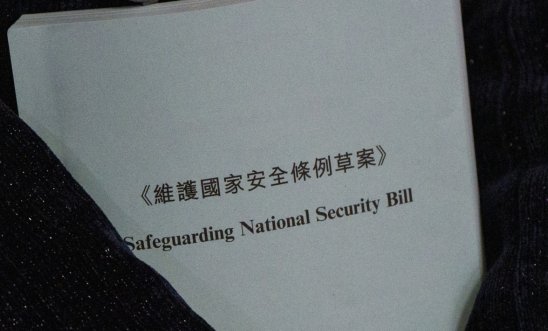
Press releases
Hong Kong: Arrests under new security law a 'shameful attempt' at suppressing peaceful commemoration of Tiananmen crackdown

National security police announced the arrests of six people for allegedly violating Article 23 - the first known detentions under this law
‘Remembering the Tiananmen crackdown is not and never shall be a crime’ – Sarah Brooks
In response to the police’s first use of the recently adopted “Article 23” law to arrest six people, including human rights activist Chow Hang-tung, for alleged sedition crimes, Sarah Brooks, Amnesty International’s China Director, said:
“The Hong Kong government has once again moved to suppress freedom of expression as it attempts to stop people remembering the horrific events of 4 June 1989.
“Chow Hang-tung’s 1000th day in detention on national security charges is next week – on 4 June, no less – and the authorities seem intent on ensuring that her fight for freedom is even longer by adding new so-called crimes to her file.
“Despite warnings from UN human rights experts that the law is inconsistent with international human rights laws and standards, the Hong Kong government insists on weaponising it to silence critique.
“The government’s shameful attempt to prohibit people from marking the upcoming anniversary is an insult to those killed in the Tiananmen crackdown and their family members.
“Chow Hang-tung and others in Hong Kong arrested simply for exercising the right to freedom of expression should be immediately and unconditionally released, and the Hong Kong police must refrain from suppressing other peaceful commemorations of the 1989 tragedy. Remembering the Tiananmen crackdown is not and never shall be a crime.”
Arrests under Article 23 security law
Five women and one man were arrested today for allegedly committing offences in connection with seditious intention under section 24 of the Article 23 law.
A government press release stated that the arrests are related to social media posts commemorating “a sensitive day” (referring to 4 June, the anniversary of the Tiananmen crackdown). Media and civil society groups reported that detained activist Chow Hang-tung and her mother were among the six arrested.
Hundreds – possibly thousands – of people were killed in and around Beijing’s Tiananmen Square on 4 June 1989 when Chinese troops opened fire on students and workers who had been peacefully calling for political and economic reforms as well as an end to corruption. For thirty years, Hong Kong hosted the largest vigil in the world to commemorate those who stood up for freedom, and those who lost their lives, in June 1989.
Hong Kong’s Legislative Council unanimously voted on 19 March to pass the Safeguarding National Security Ordinance under Article 23 of the Basic Law, Hong Kong’s mini-constitution. The Ordinance increases penalties for acts relating to sedition and contains many troubling provisions, such as the vague and broadly worded crime of ‘external interference’ as well as an attack on the right to a fair trial.